If someone came up and told you about an ‘amazing’ new supplement that can do everything from increase your strength to make you smarter, what would you do?
Call them a liar and walk away, right?
And to be completely honest, I would probably think the same.
Unless, of course, they were talking about creatine.
What is creatine?
Creatine is a natural substance made by your body from amino acids.
Most of the creatine you have in your body is stored in your muscle cells. It is then broken down for energy during physical activity. Considering this, creatine supplements simply increase your creatine stores, enhancing your exercise performance in the process.
It is for this reason that creatine has become one of the most used supplements on the planet.
The benefits of creatine for athletic performance
It is important to note that we predominantly use creatine to fuel exercise that is short in duration, and of a super high intensity. Think of something like a 100 meter sprint – 10 seconds of maximum effort, almost entirely supplied by creatine.
With this in mind, supplementing with creatine has been shown to cause significant improvements in muscle strength and power (Branch, 2003).
This has obvious implications for those who complete in any events that involve explosive efforts such as track and field, and any team sports.
Interestingly, because creatine allows you to lift more weight (and often for more repetitions) in the gym, it has also been shown to cause significant improvements in muscle growth (Olsen, 2006).
This makes it essential for anyone competing in a sport where lean muscle offers benefit (which is pretty much every sport ion the planet…).
Finally, creatine has even been shown to improve endurance performance.
In sports that require sustained high intensity efforts (think middle distance running, rowing, swimming, and cycling), supplementing with creatine has been shown to improve performance significantly (Chwalbiñska-Moneta, 2003).
So, I guess you could say that if you compete or train in any capacity, you should be taking creatine.
Creatine and neurological benefits
But wait, there’s more.
As difficult as it may be to believe, recent research has shown that creatine also offers some key benefits that sit beyond athletic performance.
And it all happens in the brain.
Supplementing with creatine has been shown to help fight against age-related cognitive decline and dementia, prevent the onset of depression and anxiety, and even increase mental acuity and cognitive capabilities (McMorris, 2007; Kondo, 2011; Avgerinos, 2018).
In short, it makes you smarter.
In my opinion, this truly makes it one of the most effective supplements on the planet.
When is the best time to take creatine?
When it comes to taking creatine, it is important to note that there is not really a ‘best time’ per se.
See, the goal of creatine supplementation is to increase your natural stores above normal levels for a prolonged period. As a result, most people recommend a two-phase supplementation protocol. This is made up of a ‘loading phase’ and a ‘maintenance phase’ (Burford, 2007).
- The loading phase revolves around taking about 20 grams of creatine per day for 5 to 7 days. During this phase, the dose should be spread out evenly into 3 or 4 smaller doses. This is taken evenly throughout the day.
- Then, in the maintenance phase, creatine doses should be kept at 3 to 5 grams per day for anywhere between 6 and 12 weeks. After this period it is often recommended that you take 1-2 weeks off, before starting the entire protocol again.
Research has shown this to be one of the most effective ways of supplementing with creatine.
With this dosing schedule, the time of day is much less important than simply making sure you take it every single day.
What foods contain creatine?
With all this talk of creatine supplements, I should note that creatine can also be found naturally occurring in many foods.
Meat like beef, pork and fish are all excellent sources of creatine (remember, creatine is found in muscle tissue). Both eggs and dairy contain moderates amounts.
While creatine can be found in food, it is typically only obtained in small amounts. In fact, most people will only obtain between 1 and 2 grams of creatine per day from their normal diet. This is pale in comparison to what can be obtained through supplementation.
Vegetarians and creatine
Taking a quick look at the foods mentioned in the above section, it is highly likely that you may have noticed something.
Yep, they all come from animal sources.
This naturally means that vegetarians have a very difficult time obtaining adequate creatine from their diet. Over time, this can even impact their creatine sores in a negative manner (Blancquaert, 2018).
This also means those who follow a vegan or vegetarian diet may have issues improving performance and maintaining cognitive function when compared to those who are happy to eat meat (Rogerson, 2017).
I would consider creatine an essential supplement for vegans and vegetarians, irrespective of whether they perform a sport or not.
Related Article: 6 Vegan Athlete Meal Plan Ideas to Boost Performance
Should I use creatine supplements?
Given the vast amount of research demonstrating numerous creatine benefits, I am a firm believer that most people should take a creatine supplement.
This becomes even more important for those who train regularly, intend to compete in any athletic endeavour, or follow a vegetarian diet. Moreover, given the effects of creatine on brain health and function, it should also be considered by older individuals looking to maintain quality of life.
So yes, I guess you should supplement with creatine.
Is Creatine Safe?
If you have any worries about creatine, I want to ensure you that it is extremely safe.
Some side effects during the ‘loading phase’ have been reported (including stomach pain and cramping). However; they tend to subside after a day or two. Moreover, they often come from taking too much creatine at once, rather than separating your doses evenly throughout the day.
I should note that creatine also causes water retention within the muscle tissue when you first start supplementation. Therefore; don’t worry if you start to get a little heavier after a day or two, because it is just water (and it will be gone in no time).
Take Home Message
Creatine truly is one of the most effective supplements in the world. It has the ability to improve sport performance, increase muscle growth, and enhance brain function.
References
Branch, J. David. “Effect of creatine supplementation on body composition and performance: a meta-analysis.” International journal of sport nutrition and exercise metabolism 13.2 (2003): 198-226.
Olsen, Steen, et al. “Creatine supplementation augments the increase in satellite cell and myonuclei number in human skeletal muscle induced by strength training.” The Journal of physiology 573.2 (2006): 525-534.
Chwalbiñska-Moneta, Jolanta. “Effect of creatine supplementation on aerobic performance and anaerobic capacity in elite rowers in the course of endurance training.” International journal of sport nutrition and exercise metabolism 13.2 (2003): 173-183.
McMorris, Terry, et al. “Creatine supplementation and cognitive performance in elderly individuals.” Aging, Neuropsychology, and Cognition 14.5 (2007): 517-528.
Avgerinos, Konstantinos I., et al. “Effects of creatine supplementation on cognitive function of healthy individuals: A systematic review of randomized controlled trials.” Experimental gerontology 108 (2018): 166-173.
Kondo, Douglas G., et al. “Open-label adjunctive creatine for female adolescents with SSRI-resistant major depressive disorder: a 31-phosphorus magnetic resonance spectroscopy study.” Journal of affective disorders 135.1-3 (2011): 354-361.
Buford, Thomas W., et al. “International Society of Sports Nutrition position stand: creatine supplementation and exercise.” Journal of the International Society of Sports Nutrition 4.1 (2007): 6.
Blancquaert, Laura, et al. “Changing to a vegetarian diet reduces the body creatine pool in omnivorous women, but appears not to affect carnitine and carnosine homeostasis: a randomised trial.” British Journal of Nutrition 119.7 (2018): 759-770.
Rogerson, David. “Vegan diets: practical advice for athletes and exercisers.” Journal of the International Society of Sports Nutrition 14.1 (2017): 36.
You Might Like:
Everything You Need to Know About Creatine
If someone came up and told you about an ‘amazing’ new supplement that can do...How Much Protein Should You Eat?
John Barry How much protein should a person eat? What foods are high in protein?...Does a high salt diet cause cognitive impairment?
Ever since the early seventies, salt has been demonized by the health community. And with...Metabolic Flexibility: The Key to Unlocking your Health
Over the last few decades, our health has declined at a rapid rate. Despite living...The Truth About Red Meat Consumption
Over the last few decades, we have seen dietary guidelines change drastically in an attempt...The Importance of Nutrition on Brain Health
What you put into your body is damn important. I mean, without providing your body...The Ingredient in Kale That May Promote Longevity
Kale has fast become one of the most talked-about foods in the health industry, with...Caffeine May Help or Hinder Athletic Performance
Most people have heard that caffeine enhances athletic performance, in fact, current guidelines recommend ingesting...Can Intermittent Fasting and Exercise Prevent Cancer?
It could easily be argued that we are living in the best time in human...How Long Does It Take To Reverse The Effects Of A Bad Diet?
Hunter Bennett You know that eating a good diet is important. But did you know...Does Dark Chocolate Aid In Muscle Recovery?
Hunter Bennett What do exercise enthusiasts, elite athletes, and weekend warriors all have in common?...Processed vs. Unprocessed Foods
Hunter Bennett Over the last few years, we have seen a bit of a change...Regaining Homeostasis With Diet & Exercise
Hunter Bennett In scientific literature, health is often defined as a state of complete physical,...Fasted Weight Training: Does It Help With Fat Loss?
Hunter Bennett The last few years have seen the health and fitness landscape evolve in...How Intermittent Fasting Affects Sleep
Hunter Bennett Intermittent fasting has fast become one of the most popular dietary trends of...Prolonged Fasting for Health & Longevity
Hunter Bennett Throughout history, there has been one thing sought above all others. Something that...Intermittent Fasting For Weight Management & Health
Hunter Bennett Every single week there seems to be some brand new diet on the...The Ketogenic Diet: How It Affects Athletic Performance
Hunter Bennett Every week a new way of eating hits the mainstream media. They are...Canadian Food Guide- A Dietary Guideline
Hunter Bennett The Canadian government made some rather large changes to their dietary guidelines. Like,...The Effects of Exercising On a High Fat Diet
Hunter Bennett When it comes to diet, there is an incredible amount of information out...Resistance Training & Protein Supplements: What You Need to Know
Dayton Kelly This article was adapted from a combination of speeches given at the European...FODMAPS and Exercise
Dayton Kelly FODMAPs: A culprit in exercise-induced gastrointestinal distress and an explanation for athlete adoption...Can Nitrate Rich Vegetables Boost Your Endurance?
Dayton Kelly This article was adapted from a combination of speeches given at the...Gluten-Free Diet and Exercise
Dayton Kelly This article was adapted from a combination of speeches given at the European...6 Vegan Athlete Meal Plan Ideas to Boost Performance
Jessica Gillespie-Friesen Animal products contain essential nutrients that contribute to proper body functioning but also...Relative Energy Deficiency: Nutrition For Endurance Athletes
Evan Stevens Speak with any endurance athlete and the topic of conversation almost always steers...What Are Probiotics and Prebiotics?
Alyssa Bialowas In response to the current cultural nutrition trend surrounding probiotics and supplements, pharmacies...3 Important Things Athletes Should Consider Before Going Vegan
Alyssa Bialowas The vegan diet is becoming increasingly popular among the general population and is...Do Ketogenic Diets Reduce Anaerobic Performance?
Evan Stevens Ketogenic diets have come to the forefront of popular health fads in the...Does the Keto Diet Affect High-Intensity Exercise Performance?
A Review by Alyssa Bialowas The ketogenic diet has been making waves due to its...The Best Way to Prevent Gut Rot During Your Workout
Alyssa Bialowas One of the worst things that can happen to you before you start...Everything You Need To Know About Protein Supplements
Evan Stevens The study of protein is a huge undertaking. It is one of the...Is There a Magic Bullet to Protein Consumption?
Evan Stevens In the last three parts we discovered that a lot of what we...Does Protein Impact Trained Athletes Differently?
Evan Stevens Previously at Forever Fit Science we looked at how science changes and why...Which type of Protein Provides the Best Workout Recovery?
Evan Stevens In our previous article, The Ever Changing Science of Protein, discussed how science...The Ever Changing Science of Protein
Evan Stevens You would think that by now we would have a pretty firm grasp...Why Milk is an Effective Recovery Drink for Female Athletes
Mojtaba Kaviani, Ph.D., CEP Cow milk contains protein, casein, carbohydrates, fat, vitamins and minerals, which...Anti-Inflammatory Foods in Your Diet (and What to Avoid)
Moji Kaviani, Ph.D., CEP Inflammation is part of the body’s natural defense system. Western medicine...Can Caffeine Improve Sprint Time In Elite Swimmers?
A Review by Alyssa Bialowas Caffeine is an ergogenic aid, meaning it’s a substance that...The Next Best Supplement For Exercise Performance
A Review by Alyssa Bialowas Korean Ginseng is a nutraceutical herbal supplement, that when ingested...DHA Supplementation Reduces Inflammation After Exercise
Alyssa Bialowas Introduction to DHA Supplementation Docosahexaenoic acid (DHA) is an omega-3 fatty acid. It...Citrus Flavonoid Supplementation May Improve Exercise Performance
Alyssa Bialowas The proper diet and supplementation regimen can improve exercise performance in athletes. Research...Impact Of Omega-3s Paired With Eccentric Exercise
Alyssa Bialowas Enhanced health immunity during the holiday season is crucial to preserve the capacity...Main Food Groups: Candy Canes, Cookies, Chocolate and Eggnog
Moji Kaviani, Ph.D., CEP If your main food groups are Candy Canes, Cookies, Chocolate and...Hydration and Performance, Part 3: MANAGING HYDRATION
Evan Stevens When we sweat we lose more than just water. That fine, salty coating...Hydration and Performance, Part 2: ELECTROLYTES
Evan Stevens Electrolytes and the Right Drink For You Welcome back to our continuing discussion...Hydration and Performance, Part 1: FLUIDS
Evan Stevens We previously discussed how masters level athletes’ nutritional needs are almost no different...Athletes May Be Suffering From Vitamin D Deficiency
Moji Kaviani, Ph.D., CEP If you are not getting out a few times per week...Dietary Strategies For Managing Rheumatoid Arthritis
Mojtaba Kaviani, Ph.D., CEP Rheumatoid arthritis (RA) is a chronic condition in which the body’s...Do Masters Athletes Need Specific Nutrition?
Evan Stevens Nutrition. It’s a topic that stirs debate at every mention. One day you...Hydration For Hockey Performance
Moji Kaviani, Ph.D., CEP Ice hockey is a team sport that requires players to have...Flaxseed Supplementation, Walking, and Hypertension
Hypertension is a chronic condition that can lead to cardiovascular disease or stroke, if not treated...How Will Turkey Dinner Impact Your HIIT Workout?
Moji Kaviani, Ph.D., CEP Who doesn’t like to get more health benefits while they are...How Fruits & Veggies Counteract Chronic Disease
Evan Stevens The CDC recently released an article detailing how we should start emphasizing the consumption...Protein Intake For Masters Athletes
Moji Kaviani, Ph.D., CEP There is robust evidence supporting that master athletes (40 years and over)...8 Ways to Augment The Oatmeal Breakfast
Amanda Carney Breakfast is considered the most important meal of the day, as it should...Is Milk Beneficial for Exercise Recovery?
Moji Kaviani, Ph.D., CEP The animal source proteins such as milk, containing 80% casein and 20%...6 Ways To Avoid Hunger That Leads To Overeating
Alyssa Bialowas Dieting and body image in sport can lead to the development of either...Effect Of Gluten-Free Diet On Endurance Performance
Moji Kaviani, Ph.D., CEP Non-celiac Athletes Approximately 70% of endurance athletes experience gastrointestinal distress during their...Exercise Your Gut (Microbiome)
Julia Basso Affiliation: New York University, Center for Neural Science As a neuroscientist who studies...Pump Up Your Performance With Beet Root Juice!
Dayton Kelly This article was adapted from a combination of speeches given at the European...Health Challenges and Cleanses – A Help or Hinder?
Gillian White – MSc, PhD (Candidate), University of Toronto Health Challenges and Cleanses – Helping...Post Exercise Meal Impact On Triglyceride & Cholesterol Levels
M. Kaviani Obesity is a leading global health problem and is associated with multiple chronic...Food vs Protein Supplements
Evan Stevens The final talk in this session was a breath of fresh air for...Precision Nutrition and You: Nutrigenomic Approaches To Disease And Health
Evan Stevens We have previously discussed the growing field of nutrigenomics here at Forever Fit...Fill Up On Omega-3s
Dayton Kelly This article was adapted from a combination of speeches given at the European...Stopping To Drink: Is It Worth The Time?
Dayton Kelly This article was adapted from a combination of speeches given at the European...Re-Thinking Gender Based Nutrition
Dayton Kelley Gender Based Nutrition This article was adapted from a combination of speeches given...The Truth About Carbo Loading
Evan Stevens Carbo Loading Carb loading, for those who haven’t been around sport for the...Protein Quality Dictates Recovery, Not Timing
Evan Stevens “Oh, I’m sore today.” “I feel like it’s getting harder to work out...Exercise Enjoyment May Affect Post-Workout Eating Habits
Catherine O’Brien While a healthy lifestyle is dependent upon various factors, it is widely accepted...Effects of Alcohol On Your Workout
Gillian White – MSc, PhD (C), University of Toronto, Department of Exercise Sciences Is a...Counting Calories May Prevent Overeating
Dayton Kelly As we all know, the food we eat has an enormous impact on...3 Tips To Minimize Everyday Chemicals
Adriane Cook B.S. Kinesiology, Michigan State University www.balancewithme.com Chemicals, toxins, and pollution, oh my! Do...Coffee: Fitness Friend or Foe?
Adriane Cook B.S. Kinesiology, Michigan State University www.balancewithme.com Nothing quite unites a country like its...Sugar – Is It Hurting Your Healthy Lifestyle?
Matt Kiszka Sometimes it seems like sugar is in everything we eat. The obvious culprits...How Much Protein Do Women Really Need?
Lauren Rubadeau How Much Protein Do Women Need Based on their Activity Level? With New...Drink, Be Merry…and Exercise!
Julia Basso – PhD Most of us engage in a drink or two (or three…)...8 Ways to Prevent Weight Gain During the Holidays
Alley Rubadeau 8 Ways to Prevent Weight Gain During the Holidays You made it through...Food for Fuel: Healthy Granola Bar Recipe
Forever Fit Science Master Swim Athletes and U.S. Air Force Lieutenants, The Holman Sisters, share...BHB Supplements and Energy
Evan Stevens BHB Supplements and Energy We’ve already heard about low CHO (low carbohydrate) diets...Fat, Carbs, Protein and Recovery. Is There A Silver Bullet?
Evan Stevens The first talk in this session was very similar to the talks that...Nutrition Takeaways: Gatorade Sport Science Institute
Evan Stevens The main theme of this session was protein supplementation before bed to improve...Gene-Based Nutrition: Can It Benefit You?
Evan Stevens Based on a talk by Lisa Cianfrini at Take Control of Your Health/Wellness...Exercise Nutrition Symposium
Evan Stevens This past Saturday, April 2nd, I had the wonderful opportunity to attend the...7 Delicious Options to Increase Your Omega-3s
Amanda Carney Whether you are an athlete, partake in regular exercise or just want to...5 Easy, Heart-Healthy Breakfast Ideas
Amanda Carney – Holistic Nutrition Coach A healthy heart equals a healthy body, and we want...Reward Yourself: Post-Workout Vanilla Blueberry Smoothie
Author: Amanda Carney As a health coach, I am constantly receiving questions about what to...Three Health Chia Seed Pudding Recipes For You and Your Family
By: Amanda Carney When you think of pudding, chances are you imagine a decadent sugar-laden...The Importance of Food: How Should I Eat?
Author: Evan Stevens, MSc in Nutritional Science In my previous article, titled “What Should I Eat...The post Everything You Need to Know About Creatine appeared first on ForeverFitScience.













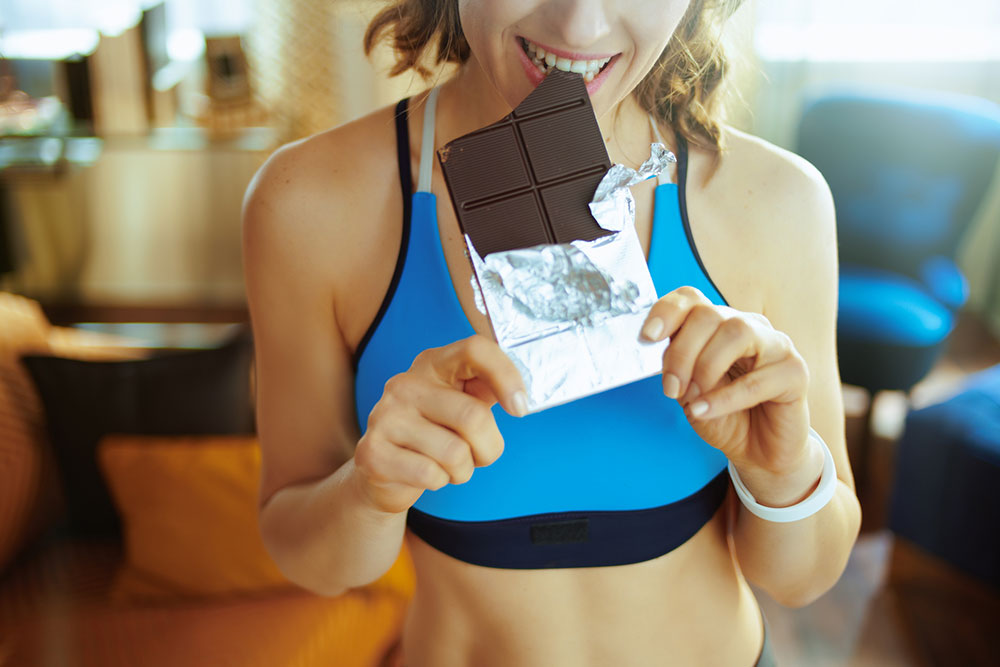





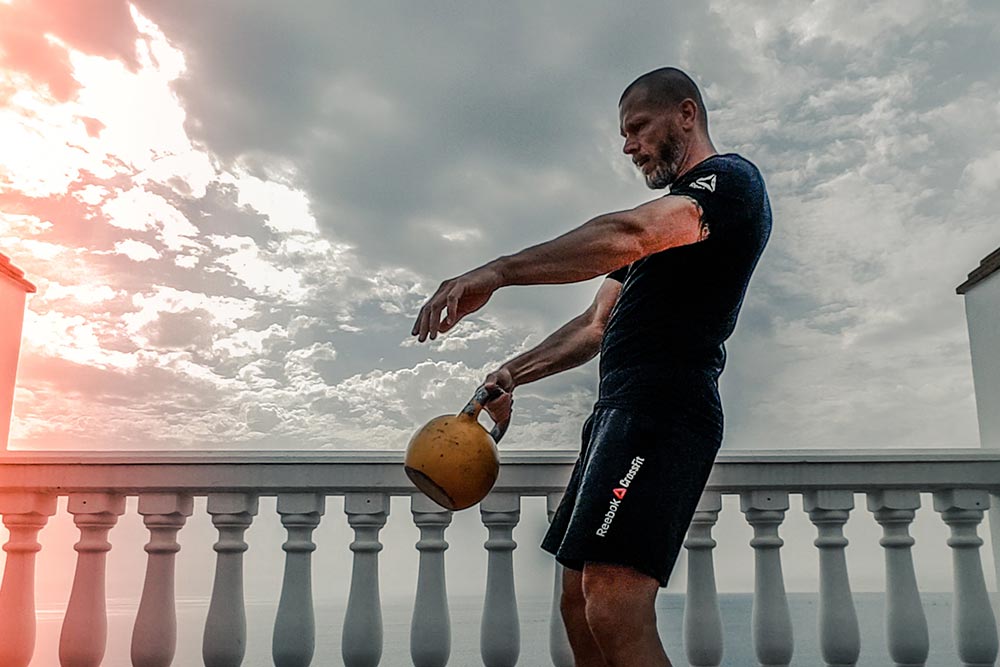









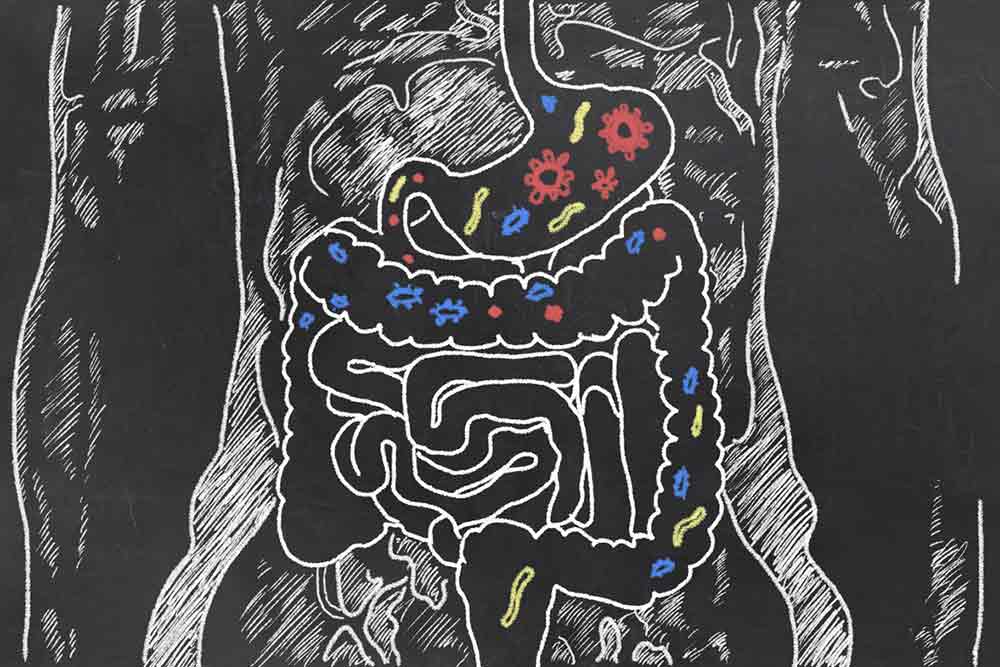





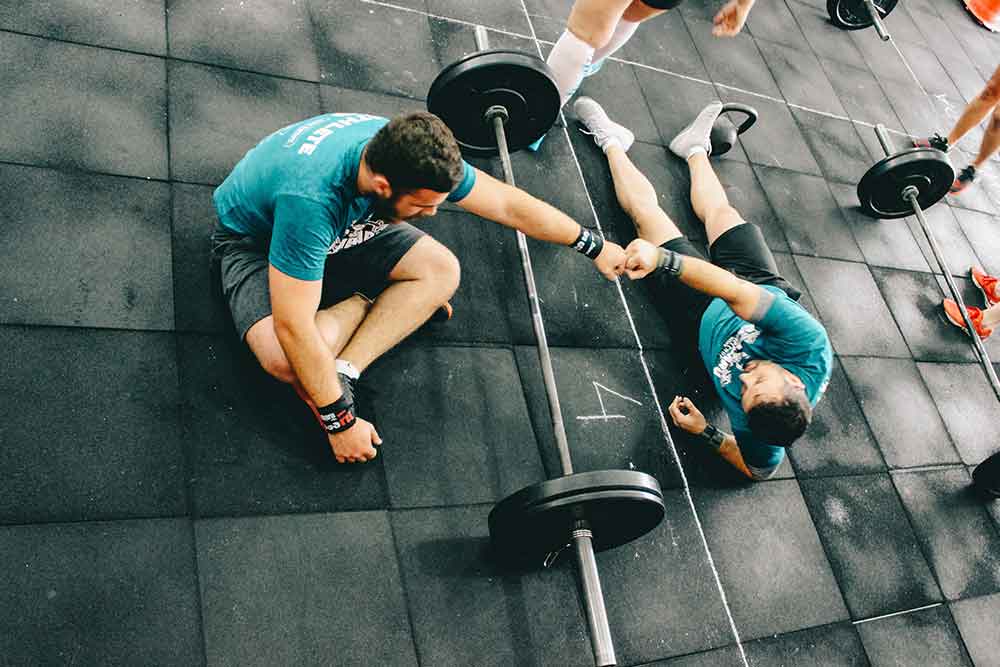



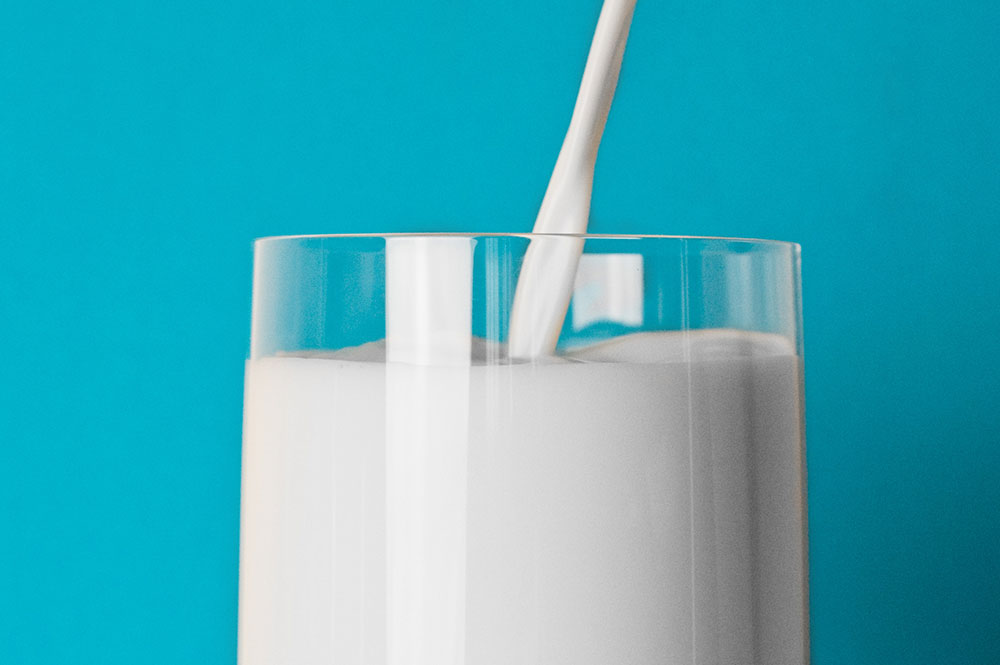







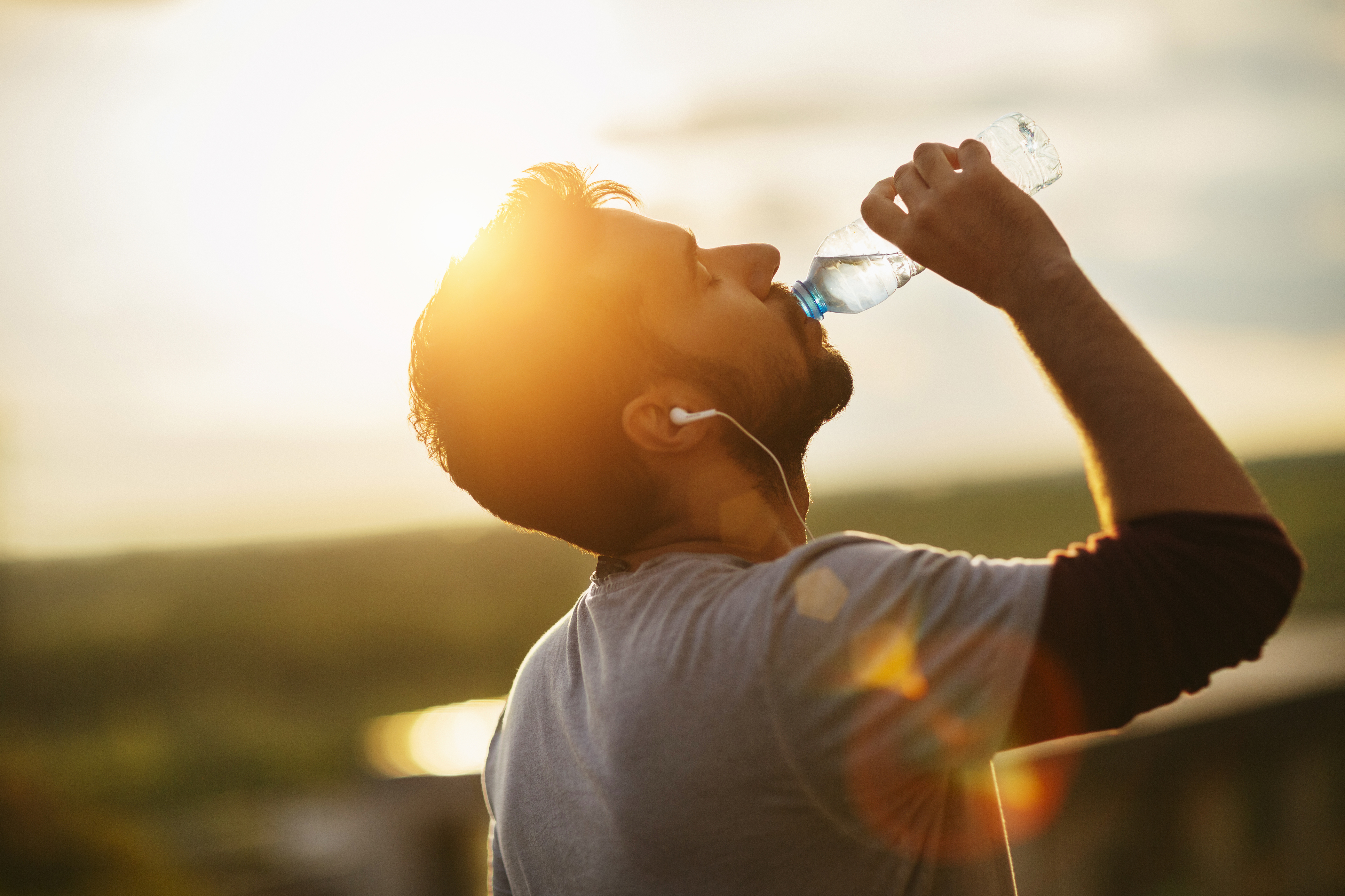
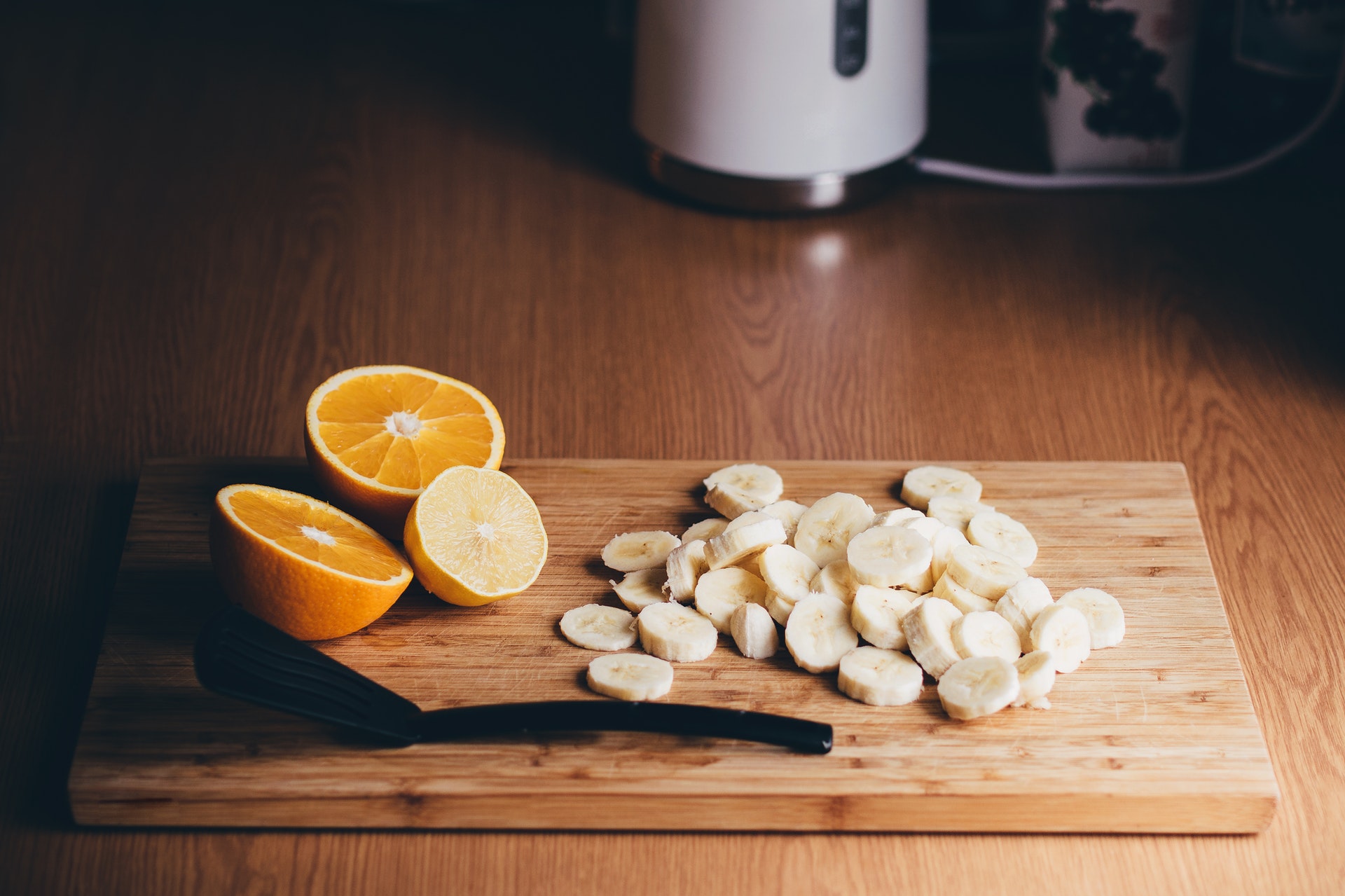





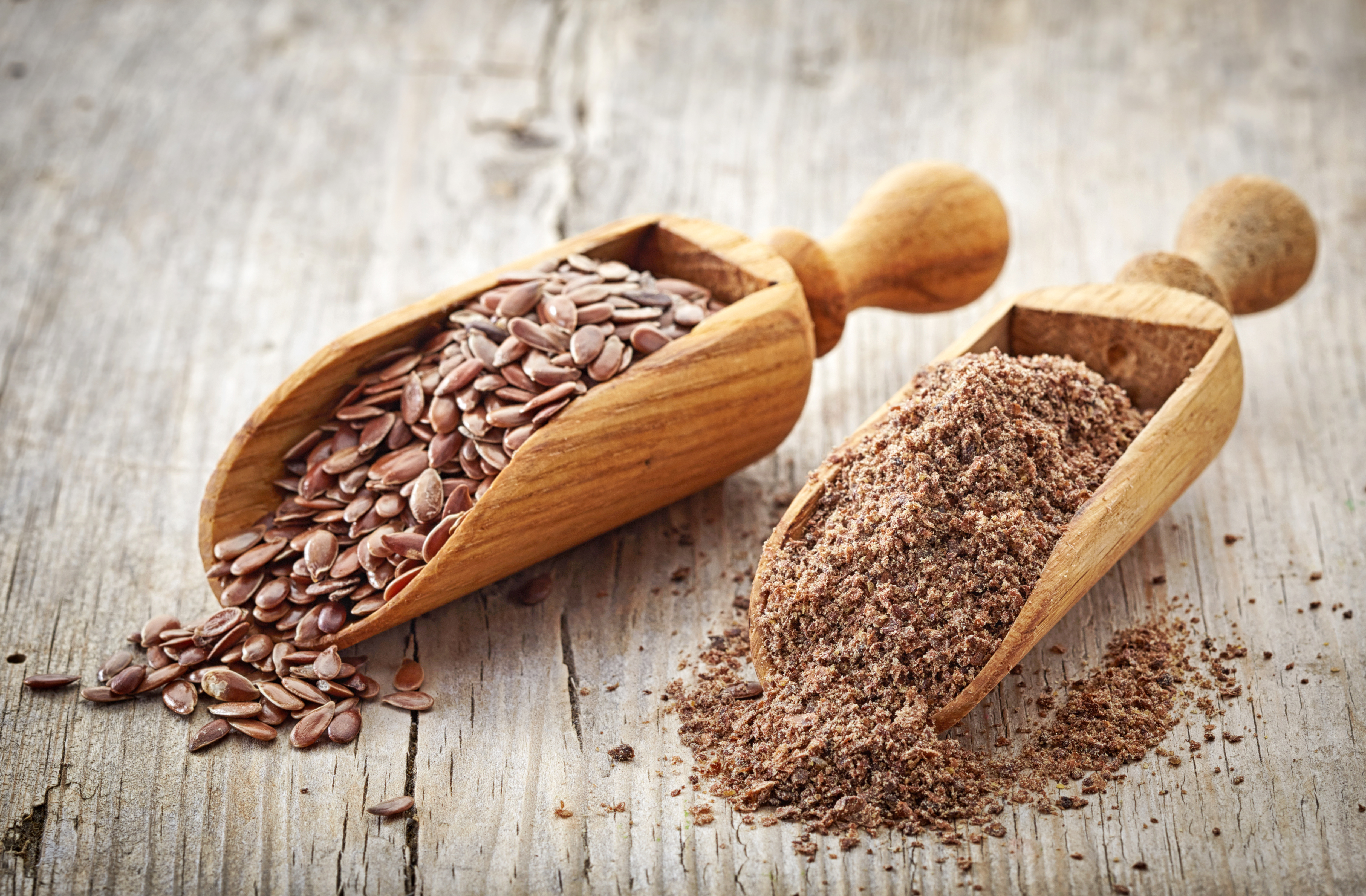







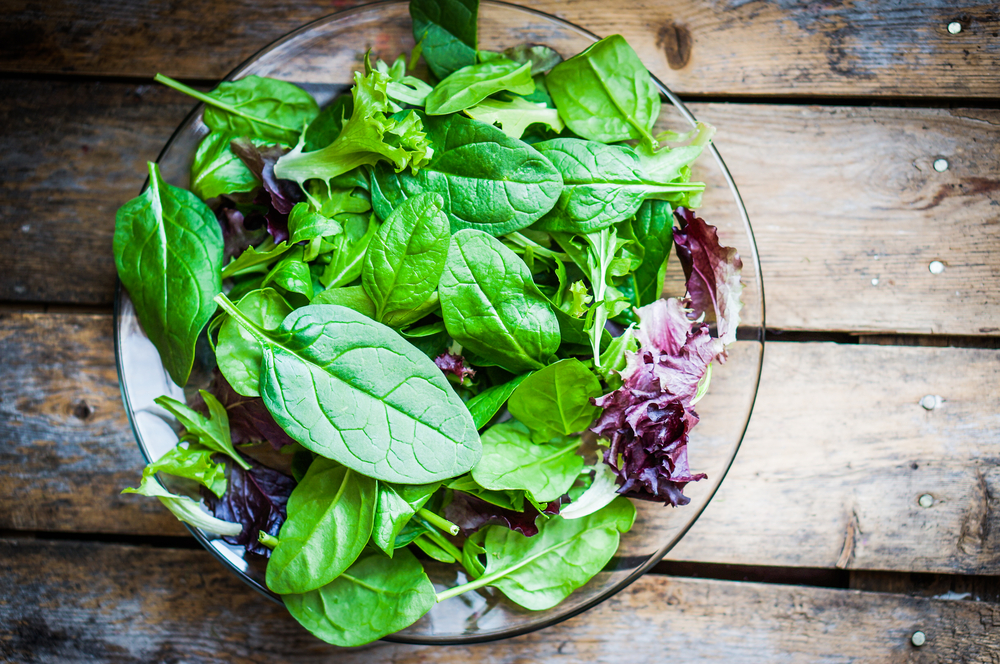



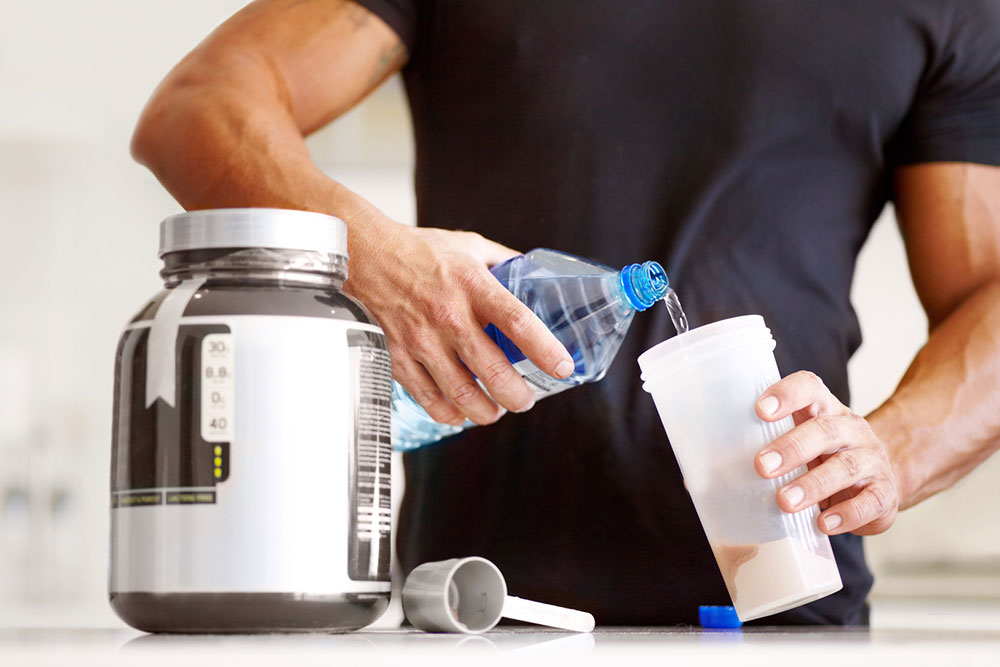




















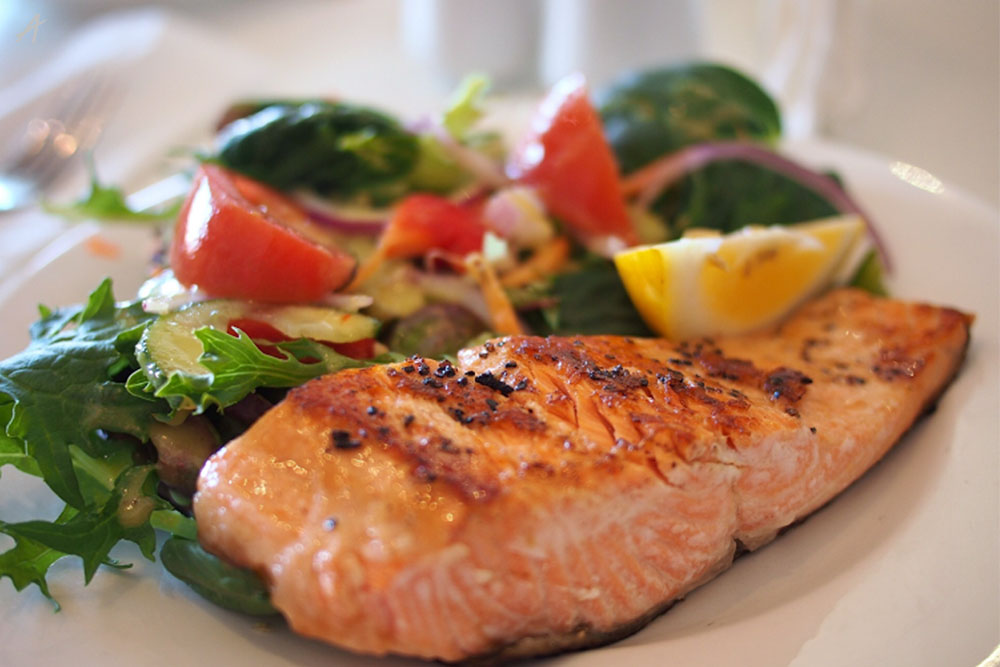


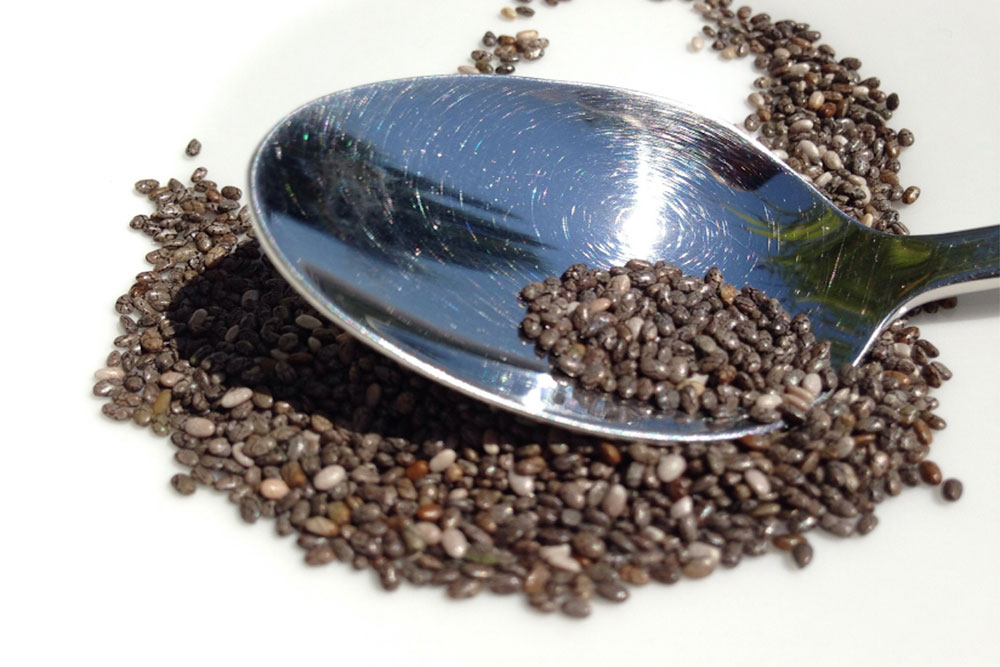

No comments:
Post a Comment